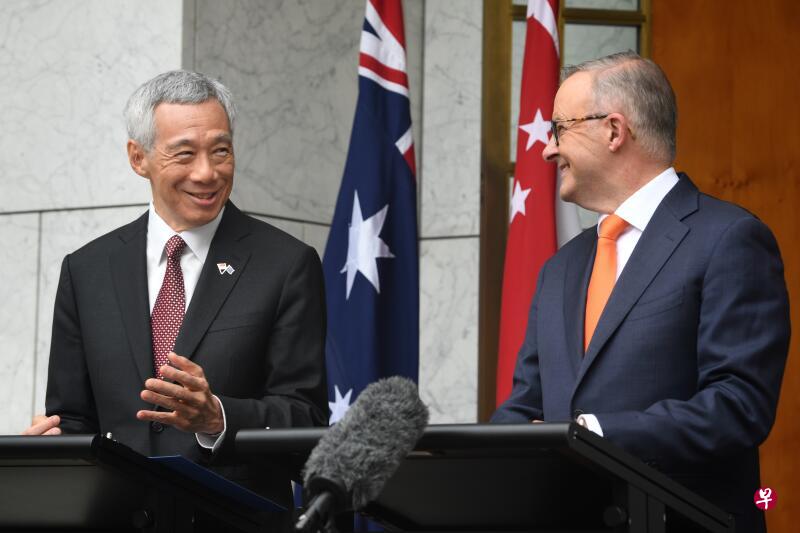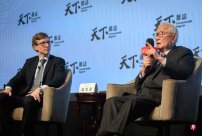
U.S. President Biden recently announced that it restricts the export of chip exports to China, which has caused the international community to worry about the Sino -US economy will accelerate the decoupling. Singapore Prime Minister Lee Hsien Loong also expressed concerns about this.
Li Xianlong, who was visiting Australia on Tuesday (October 18), attended the seventh New Australian leadership meeting in Canberra, held a joint press conference with Australian Prime Minister Albanis.
When talking about the chip problem, Li Xianlong pointed out at a press conference that the decoupling is worrying that the national security issues are true, but how to define it depends on the judgment of different governments.After careful consideration.
Li Xianlong said: "It may have a very wide impact. People have to pay attention to how the situation develops, but we are really worried that reasonable national security considerations may bring further consequences, weaken economic cooperation, mutual dependence, and mutual trust. In the endAs a result, the world is unstable. "
For the same subject, Australian Prime Minister Albanis said that he hopes that he is a government with mature diplomatic relations with the world, and does not regard diplomacy as an opportunity for domestic political scores."I have publicly said that we should cooperate with China as much as possible, but if necessary, we must adhere to the national interests of Australia."
On the other hand, in response to China seeking to join the comprehensive progress of cross -Pacific partners, New Prime Minister Li Xianlong said that he believes that China can meet the relevant requirements and the negotiation with other members can be successful.
Li Xianlong said at a press conference that Singapore has previously expressed support for China to join the Capital Progress Progress Agreement (CPTPP) for China.As the current chairman of the Agreement Committee, Singapore will do his best to consult all parties.
CPTPP's 11 current members are Singapore, Australia, Brunei, Canada, Chile, Japan, Malaysia, Mexico, New Zealand, Peru and Vietnam.The United Kingdom, Mainland China, Taiwan, Ecuador and Costa Rica have already applied to join the agreement, and South Korea and Thailand also intend to join.
Although China is Australia's largest trading partner, Australia has reserved an agreement on China, especially whether China can meet the requirements of free trade.Australia also urged Beijing to cancel a large amount of sanctions on Australian products during the diplomatic dispute.
As for whether to discuss this when talking with Albanis, or try to persuade the other party to accept China as a member of the agreement, Li Xianlong replied to a question from an Australian journalist: "Australia knows what we are doing, and we also understand each other.The point of view. "


